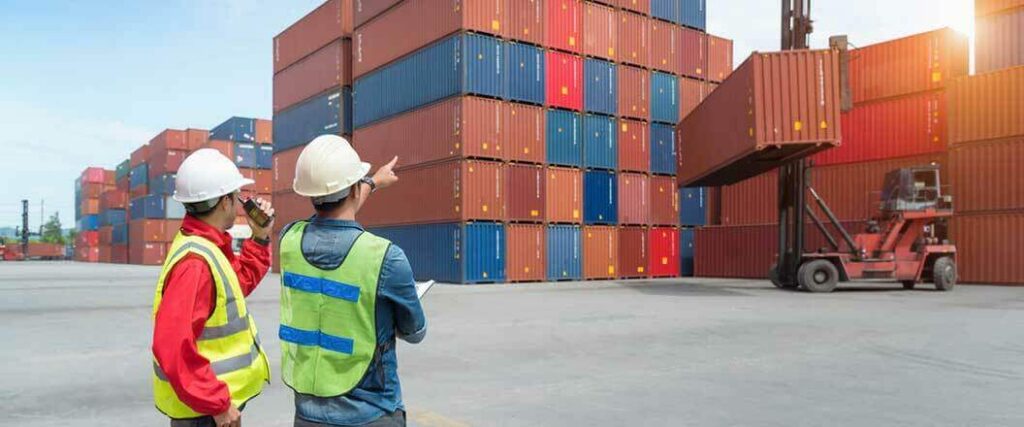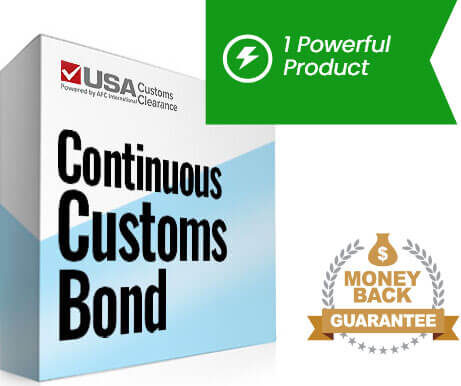An FDA customs hold is something that many importers dread. These delays put a pause on the customs process. Holds can lead to significant delays, unexpected costs, and a range of challenges for those eager to receive or distribute their goods. It’s vital that U.S. businesses avoid these pauses at all costs.
The FDA (Food and Drug Administration) will issue a customs hold when the agency suspects that imported goods need further examination. These holds come after the FDA uses a risk-based screening system called PREDICT. If there are concerns about safety, compliance, or documentation, the agency will hold the shipment for further testing.
As in importer, it’s important to know what causes FDA customs holds, how they can lead to detention, and how to prevent them from happening.

When the FDA determines a product needs to be held after using PREDICT (Predictive Risk-based Evaluation for Dynamic Import Compliance Training), the items are closely scrutinized.
FDA-specific holds cover products such as:
During a hold, the agency might review entry information, conduct a physical inspection of the product, or take samples.
If a shipment is held by the FDA, U.S. importers can check the real-time status provided by the agency. They can also use the portal for a few other significant purposes.
This includes:
If the FDA determines the regulated products are in compliance with U.S. law, the goods will be released into U.S. commerce.
An FDA hold doesn't necessarily mean something is wrong with a shipment. It’s simply a preliminary step used to determine whether the imported goods abide with U.S. laws. In most cases, the shipment stays where it is.
If products violate or even appear to violate U.S. laws, the shipment will be transferred into detention. This is much more serious and importers will need to address the problem directly. There are often additional fees tacked on if the goods require storage at a secondary location.
When the FDA detains items in a shipment, importers will receive a Notice of Detention and Hearing from the agency. There will be a ‘respond by’ date on the paperwork. This signifies the amount of time importers have to provide testimony, or evidence, proving the detained items are legal.
The information can be submitted to the FDA compliance officer listed in the notice during the hearing. If an importer cannot prove their items don’t violate U.S. laws or refuse to address the detention notice, a Notice of FDA Action – Refusal will be given. This will prevent the shipment from being admitted into the country.

Many importers are surprised and left wondering why their products offered for entry are being held by the FDA. There are a few areas of concern that can raise FDA suspicions, which can lead to a hold.
These include:
Importers should treat these areas of their shipment with care to prevent their items from being held.
One of the primary reasons for an FDA customs hold is related to the labeling or packaging of the goods being imported. This might seem like a minor foul, but the agency looks at these details very carefully.
Misbranded labels can have false or misleading information. The FDA has set standards to ensure that consumers get accurate and essential information. The rules especially stringent for food items, medicines, and cosmetics.
If an FDA official reviewing the shipment discovers misbranded labeling issues for a certain product, then the goods can be moved from a hold and into detention.
Common labeling issues can include:
Any omission of critical details, like ingredients or usage instructions, can cause the FDA to hold an item. If a label makes a health claim that's not supported by evidence, it can be deemed as misleading. Finally, goods intended for the U.S. market need to have labels that are in English.
FDA imports might be held if officials suspect that items were manufactured, processed, or packed in unsanitary conditions. Since the agency is concerned with public health and safety, it wants to ensure that all products are safe for consumption.
Signs of unsanitary conditions the FDA checks for include:
Goods manufactured in unsanitary conditions can be contaminated, posing severe health risks to consumers. Food items that show signs of mold, strange odors, and unusual discoloration are tell-tale signs of spoilage.
Damaged or compromised packaging might imply the contained product has been exposed to unsanitary conditions during transit. If the FDA determines that imports were in an unclean environment, they will put the items into detention.
The FDA doesn’t approve of products that are forbidden or restricted for sale in the country it was produced or was exported. This means if an item is illegal in a foreign country, the FDA will forbid it from coming into the country. As a result, shipments that are suspected of having these goods can be placed on hold.
If the items in an import are forbidden or restricted for sale in another country, chances are it won’t be safe under FDA regulations. Products that are found to fit into this category will be moved into detention by the agency.
The United States Federal Food, Drug, and Cosmetic Act doesn’t allow the importation of new unapproved drugs. Therefore, the FDA will place a hold on imports they suspect of having these products.
Dangers of importing unapproved drugs include:
Unapproved drugs haven't undergone rigorous FDA testing, meaning their safety for consumers remains uncertain. Without FDA approval, there's no verified proof that the drug does what it claims without causing harmful side effects.
The manufacturing processes for unapproved drugs might not meet the FDA's standards, leading to concerns about the composition and stability of the substance. There are a few ways the agency can detect unapproved drugs.
This includes:
Any drug being imported into the U.S. requires specific documentation proving its FDA approval status. If those documents aren’t readily available, it raises suspicions amongst FDA officials.
When importing pharmaceuticals into the U.S., the presence of unusual or non-standard packaging is another giveaway that they items may be unapproved. The same can be said for labels used for these items. Finally, the FDA may conduct random inspections when searching the shipment.
Held imports that are found to contain unapproved new drugs will be moved into detention. Therefore, importers should make sure their goods have FDA approval.
Suspicion of adulterated goods is another reason FDA customs holds might occur. Adulterated products are those that don’t comply with the Current Good Manufacturing Practice regulations. Drugs that aren’t subject to New Animal Drug Applications (NADA) approval can also fall under this category.
Concerns with adulterated products include being:
The FDA takes these shipments very seriously due to the risks posed to public health. A number of different contaminants can make their way into food-related products. We’ve provided the ones most commonly found in detained shipments.
| Reasons for Detention | Percentage |
| Aflatoxin | 45% |
| Pesticides | 19% |
| Pathogens | 16% |
| Quality/Filth | 16% |
| Claims of Organoleptic Issues/Rancidity | 2% |
| Other | 2% |
Provided by Safe Food Alliance
As these numbers show, contamination is a serious issue for food products. The most common culprit, aflatoxin, represents a cancer-causing toxin that comes from a fungus found on a variety of agricultural products. That said, other FDA regulated goods can just as easily be contaminated.
If products are suspected of adulteration, the agency will do the following:
Often, customs will pick random samples from a shipment to test for adulteration. If the items pass the test, importers will be financially compensated. However, goods that are adulterated will be put into detention.
Companies that have had previous issues with their imports are more likely to be flagged and tested during the clearance process. The same is true of companies that bring in high-risk products.

Use our look up tool to find your product. Simply put in a phrase or single word, then search away!
There is no limit to how long an FDA customs hold can last. However, if a refusal notice is offered, importers will have 90 days to destroy or re-export the shipment. The longer it takes for goods to be released, the more inconvenient it is for U.S. importers and their customers.
Related:How Can I Speed Up Customs Clearance?
The efficient flow of goods from one country to another ensures that businesses can operate smoothly and meet the demands of their clientele. However, an FDA customs hold can introduce unexpected operational delays that ripple through an organization's operations.
This can cause the following problems:
Goods that are subject to an FDA customs hold can miss connections to other transport modes, like trucks or domestic flights. Rebooking shipping is time-consuming, and more expensive as well.
Contracts between importers and their buyers usually come with strict timelines. Breaches in these agreements can create problems for both parties that result in loss of business for the seller. Contract breaches can also result in penalty fines.
Importers may be trying to restock their inventory when their imported goods are hit with an FDA customs hold. If this happens, warehouse shelves can be left empty, with customers still waiting for their order to arrive.
Storage complications often occur when there’s a stock shortage. Warehouses typically make space for new items to fill. When an FDA customs hold occurs, these areas might be left empty for a prolonged period of time. For the warehouse in question, it can represent a significant loss of revenue, one they may try to fill by charging no-show fees.
Logistical challenges aren’t the only thing U.S. businesses will have to worry about during an FDA hold on imports. There are financial repercussions that can do serious damage as well.
A variety of fees are connected to:
The risk of spoilage is more likely for held shipments of perishable items, such as ones that require temperature control. Goods that deteriorate or become unsellable result in a direct financial loss for importers.
Once items are released by the FDA, the buyers of the goods will need to arrange for transport right away. These shipping expenses will likely be higher than the original plan importers had in place before their shipment was held.
Delays can result in out-of-stock situations, leading to lost sales opportunities. For businesses with seasonal products or those operating on tight schedules, this can be particularly detrimental. Customers won’t wait around for their products, either. If it takes too long for them to receive their shipment, they may request a refund and find another supplier.
Some contracts between importers and their customers contain clauses that impose penalties for late deliveries. An FDA hold might result in breach of such contracts, leading to financial expenses.

An FDA customs hold can waste time and money for importers. That’s why it’s best that U.S. buyers avoid this delay altogether. Fortunately, importers can use different strategies to ensure their goods aren’t held by the FDA.
Engaging in international trade and ensuring the seamless transfer of goods is often a complicated process. This is especially true when dealing with products under the FDA's purview, where strict regulations and intricate procedures can create bottlenecks. Finding a customs broker will help importers overcome challenges.
These professionals bring a variety of benefits:
Customs brokers are trained in and familiar with the ever-evolving FDA regulations. They can ensure that goods comply with the latest stipulations, reducing the risk of holds. Many customs brokers have seen the mistakes that previous importers have made. These professionals can help buyers avoid common pitfalls by keeping them on the right path.
When it comes to abiding by FDA regulations, it helps to have a second set of eyes. Before any submission, brokers can double-check the documentation for accuracy, ensuring no detail is overlooked. Customs brokers often have direct lines of communication with Customs and Border Protection (CBP) agents and FDA officials. This allows for quicker resolutions and clarifications.
Read our article on import & export documents to find the paperwork you need.
Importers typically have very little direct control over the labeling and packaging procedures of their shipment. Clear and early communication of U.S. regulations with their seller is vital. Doing this ensures the exporter will package and label the goods according to FDA guidelines.
Importers can also try using suppliers that have other U.S. clients. Exporters like these will already be familiar with FDA regulations. As a result, using suppliers that frequently ship to the U.S. will reduce the likelihood of an FDA customs hold.
The FDA, above all else, is committed to safeguarding the health and well-being of consumers. As such, one of its primary concerns when assessing imported goods is the sanitary conditions under which these products were manufactured. The last thing an importer wants is to have their shipment held because the FDA believes their items are contaminated.
Buyers can find a sanitary supplier by using these methods:
Websites like Alibaba, Global Sources, and Made-in-China provide supplier directories. While these are good starting points, it's essential to verify any claims made by suppliers on these platforms.
Hiring a third-party inspection agency to visit and assess a supplier's factory can provide an objective evaluation of the sanitary conditions and quality control measures in place.
Performing a supplier audit and visiting a facility personally or through a trusted representative gives a first-hand look into their operations, allowing importers to assess sanitary conditions directly.
Another option is to check if a potential supplier has certifications attesting their safe and sanitary manufacturing standards.
Finally, trial orders will help determine the cleanliness of a supplier’s manufacturing operations. This gives importers an opportunity to review a small sample of products. Based on the quality of these items, they’ll be able to determine what it would be like to order the same goods in larger quantities.
Importers should check if the drugs they’ve ordered are approved by the FDA or if the items are forbidden in the country that produced or exported the shipment. Therefore, it’s important they conduct thorough research before purchasing an item from another country. To determine if imported drugs are approved by the FDA, businesses can consult two different resources.
These include:
Drugs@FDA has most prescription and over-the-counter (OTC) drugs that have been approved since 1939. Importers can also use the site to find generic equivalents and alternatives to drugs they want to import.
The second option is the FDA Orange Book, which contains drugs approved under New Drug Applications (NDA) and Abbreviated New Drug Applications (ANDAs). Importers can find updates on the top of the page for this site.
U.S. businesses will need to conduct considerable research when it comes to determining if FDA regulated goods are illegal or restricted in the exporting or manufacturing nation. Importers can check the embassies of foreign countries to find out which items are forbidden or restricted for sale. Checking with specific agencies that regulate the product is another good way to find useful information pertaining to these products.
A third source of assistance comes in the form of a consult with a licensed U.S. Customs Broker. They can often double-check on the FDA approval status of an item. If it is possible to by-pass the FDA, as certain vitamins can, they can assist you in finding the correct documentation to do so.
While navigating the complexities of an FDA customs hold can be daunting, it doesn't have to be a solo journey. With the right expertise and support, you can seamlessly move your goods through customs without unnecessary delays. USA Customs Clearance can help by ensuring importers are well-equipped to handle any challenge.
Our services include:
We recognize the pivotal role efficient customs clearance plays in the success of your business. That’s why our dedicated team is always ready to help, bringing you peace of mind and ensuring a smooth customs experience.
Ready to make your importing journey stress-free? Call us now at (855) 912-0406 to access one of our many import/customs-related services. Let USA Customs Clearance be the trusted partner you deserve in your import endeavors.

Ensure your duties and fees are paid with this powerful document!
 Copy URL to Clipboard
Copy URL to Clipboard
Add your first comment to this post